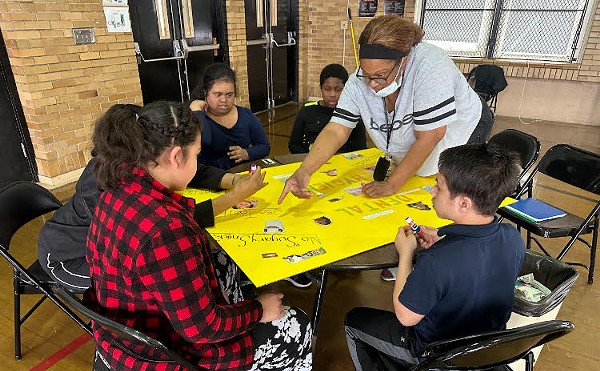We’ve all got regrets, right? People to whom we should have introduced ourselves. Educational opportunities we failed to take full advantage of. Events we lament not attending.
In the late ’60s, Little Richard eschewed rock ’n’ roll and that lifestyle, for a while anyway. He was on the lecture circuit, talkin’ ’bout Jesus. He gave a lecture at U of L one school night. I guess I thought I had better things to do than hang out in an intimate setting with the self-styled architect of the music I love. So what that he was talking religion, I shoulda been there.
Guess you know that bad boy soul man Wilson Pickett was buried in town last Saturday. Who knew he had family here until after the day he didn’t make it ’til the midnight hour?
Anyhow, Little Richard, long a rather sad caricature of his flamboyant self, did show for the funeral. Along with a couple of Pickett’s cohorts in the Falcons, whose “I Found A Love†is a doo wop classic. I, like a fool who should know better, chose instead to stay home and watch U of L spit the bit at Rutgers.
The dumbass is 0 for 2. Pickett was one of the last of the great soul singers. Of the icons, Aretha, Al Green, James Brown and Solomon Burke are now left to carry the torch. Wilson Pickett, while never in the category of that quartet, was a raw, unbridled force.
Soul music changed American, then world, culture. It’s continually brought great joy into our lives.
I shoulda been there.
Wilson Pickett wasn’t the only black entertainer of note to pass away last week.
The world also lost Fayard Nicholas, the last brother of the world’s greatest dancing duo.
Many of you probably haven’t heard of the Nicholas Brothers. You may have seen the documentary about them on public television. Or remember snippets of their performances in the “That’s Entertainment†series. If you’ve ever seen them, you’ve been impressed.
Of these siblings, Mikhail Baryshnikov said, “They are probably the most amazing dancers I’ve seen. Those guys are perfect examples of pure genius.â€
The performance of theirs that most know — the one Fred Astaire called the greatest musical number he ever saw — comes near the end of the film, “Stormy Weather.†Cab Calloway is singing in a swank supper club, then these two fellows in tails get up, join Calloway, then start dancing. Tapping.
Swooping. Leaping on tables. Always elegant. Always in perfect complementary rhythm.
The three-minute sequence ends with Fayard and his brother, Harold, leap-frogging over each other down a spiral staircase. Into full splits. From each of which they arise without using their hands, to immediately repeat the feat. Seven times total.
It is breathtaking, athletic, Olympian. It was filmed in one continuous take.
It is not even their greatest routine on film.
That comes in “Down Argentine Way.†This 1940 film is a mindless typical-for-the-time musical, featuring Don Ameche, Betty Grable and the always fruitbasket headed, Latin bombshell, Carmen Miranda.
The film slides along, moderately amusing, a grin, something to watch late at night until your eyes close at slumbertime. Until, that is, the immaculately attired Nicholas Bros. start their tap routine. Then they start swirling, flipping and turning cartwheels. If memory serves, they do something akin to the moonwalk, made famous decades later by Michael Jackson.
It is pure jaw-dropping innervation.
What is sad about the passing of Wilson Pickett and Fayard Nicholas is that they move on with little more than a shrug of recognition from contemporary culturists.
Black artists have always been a main ingredient of the foundation of American pop culture. Tap was an amalgam of Irish Clogg dancing put to African and Caribbean rhythms by immigrants to the United States. It gained its form in the minstrel shows after the Civil War.
Soul music — passionate, unrestrained — emanated from the slave culture of the rural South. Despite the genre’s inherent sexuality, most of its purveyors started their careers singing gospel in church. Economic forces and the desire for a wider audience dictated the switch.
Our culture today still takes more from the African-American lifestyle than many would care to admit. Even the kids in Lake Forest have succumbed to the invasion of hip hop.
There always has been and still is a place for earthiness, grit, emotionalism and free-spirited motion in artistic expression. The passing of Wilson Pickett and Fayard Nicholas reminds us yet again that these traits are the hallmark of a segment of society many wish to overlook.
Contact the writer at [email protected]





